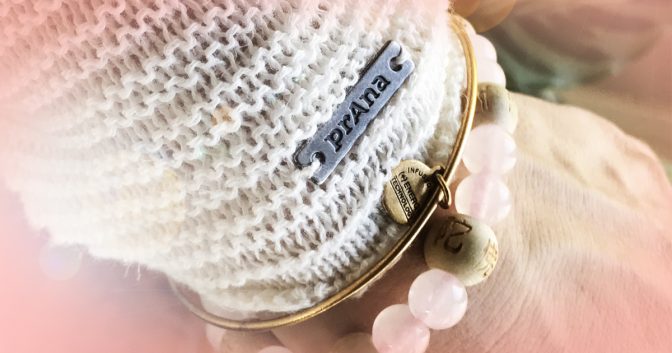prAna Takes Lead in Hemp Clothing Revival

In the mid-’90s, hemp bracelets and necklaces were ubiquitous among students and cannabis activists. Shirts, jeans, jackets and sneakers made from hemp showed up in shops across the country. High Times opened a store called Planet Hemp in downtown Manhattan.
But the hemp-clothing bubble didn’t last. Companies like Ecolution, Crucial Creations and Ohio Hempery closed their doors. The problem was high costs and inferior hemp imported from countries like China and Romania.
One current company that’s making stylish and practical hemp clothing is the Carlsbad, Calif.-based prAna. Founders and outdoor enthusiasts Beaver and Pam Theodosakis have been selling clothing for 24 years since starting the business in their garage. Their extensive line is available at prana.com and at retail stores like REI, Dick’s Sporting Goods and Eastern Mountain Sports, as well as their own prAna stores in San Francisco, Palo Alto, and El Segundo, Calif.; Denver and Boulder, Colo.; Portland, Ore.; and Edina, Wash.
“Our founders were introduced to hemp decades ago and always followed its development in apparel,” Andre Walker, who oversees brand engagement and partnerships at prAna, tells Freedom Leaf. “They realized very early on the benefits of the fiber and the minimal environmental impact the plant caused, which has kept it on our design and materials list.”

prAna founders Beaver and Pam Theodosakis
That list includes organic cotton, recycled polyester and spandex, which are blended with Chinese-grown hemp and made into shorts, pants, skirts, dresses, sweaters, scarves and headbands.
There are many reasons hemp products should be on any eco-conscious consumer’s Top 10 buy list. Hemp replenishes rather than depletes soil and is a bioremediator, meaning it removes toxins from the soil and stores them in the hardy stalks. Hemp also uses fewer water and land resources, enabling farmers to earn more on their crops, and is bacteria-inhibiting, thermo-conductive, fast drying and incredibly durable compared to other fibers.
Twenty years after the first hemp boom, clothing made from cannabis is finally finding a home in the outdoor retail sector. The major clothing chain Patagonia offers a selection of hemp clothing, and retail behemoth Amazon has a relatively limited selection of utilitarian hemp clothes, like T-shirts and socks.
«Hemp clothing is now found in stores of all types including those carrying items by designers like Armani,» says Eric Steenstra, who founded Ecolution with Steve DeAngelo. «Hemp is now a mainstream product and is sold in stores along with other products.»
In order to eliminate hemp’s somewhat scratchy natural texture, it’s frequently blended. “Hemp’s natural performance features mitigate the need for harsh chemical finishes that are used on alternative fibers to get the same performance features,” adds Walker, who sees California’s legalization of cannabis as a game-changer.
“California should be a true tipping point, as the clear economic, medical and social benefits happening in Colorado can be replicated on a much larger scale. Our customers have always been interested in sustainable materials, and we expect to increase the number of hemp styles as we continue to grow this segment.”

Hemp yoga capris is a popular item in prAna’s catalog.
Although no reasonable person would attempt to smoke a hemp shirt, vendors operating in the hemp industry have nevertheless faced some of the same problems that businesses working with psychoactive marijuana encounter. In October, Umpqua Bank terminated the account of Washington-based hemp clothing and paper retailer Rawganique because it operated in an “excluded line of business.” The conflict was eventually resolved in Rawganique’s favor, but it points to the continued legal murkiness facing hemp businesses.
However, it seems progress is being made. Also in October, Omaha, Neb.-based Bastcore, owner of a decorticator that separates fibers from hemp stalks, announced it would supply Recreator, a California-based hemp clothing company. This deal is an important milestone because Bastcore gets its hemp from Colorado, Kentucky and Minnesota, giving companies like prAna the heretofore-denied opportunity to use hemp made in the U.S.
As it currently stands, the potential for versatile, affordable and fashionable hemp clothing for the masses has yet to be realized. Walker believes hemp legalization is the antidote. “Hemp needs to be legal on state and federal levels to really make an impact in the U.S.,” he contends. “Consumers are more and more aware of the value of the plant and are requesting it not only in apparel, but in a number of other industries.”

